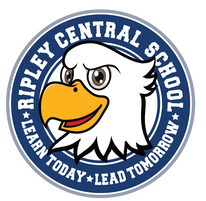WHAT IS EXPEDITIONARY LEARNING?
EL Education partners with schools and districts and provides educational resources to teachers across the world in service of an expanded vision of student achievement. We believe that when a student is done with school and enters adult life, she will be judged for the rest of her life not by her performance on tests of basic skills, but by the quality of her work and the quality of her character. Our vision of student achievement therefore has three dimensions: Mastery of Academic Skills, Character, and High Quality Work.
Additional Information can be found at: www.eleducation.org
MASTERY OF KNOWLEDGE AND SKILLS
Students
Demonstrate proficiency and deeper understanding: show mastery in a body of knowledge and skills within each discipline
Apply their learning: transfer knowledge and skills to novel, meaningful tasks
Think critically: analyze, evaluate, and synthesize complex ideas and consider multiple perspectives
Communicate clearly: write, speak, and present ideas effectively in a variety of media within and across disciplines
Teachers and Leaders
Ensure that curriculum, instruction, and assessments are rigorous, meaningful, and aligned with standards
Use assessment practices that position students as leaders of their own learning
Use meaningful data for both teachers and students to track progress toward learning goals
Engage all students in daily lessons that require critical thinking about complex, worthy ideas, texts, and problems
CHARACTER
Students
Work to become effective learners: develop the mindsets and skills for success in college, career, and life (e.g., initiative, responsibility, perseverance, collaboration)
Work to become ethical people: treat others well and stand up for what is right (e.g., empathy, integrity, respect, compassion)
Contribute to a better world: put their learning to use to improve communities (e.g., citizenship, service)
Teachers and Leaders
Elevate student voice and leadership in classrooms and across the school
Make habits of scholarship visible across the school and in daily instruction
Model a school-wide culture of respect and compassion
Prioritize social and emotional learning, along with academic learning, across the school
HIGH-QUALITY WORK
Students
Create complex work: demonstrate higher-order thinking, multiple perspectives and transfer of understanding
Demonstrate craftsmanship: create work that is accurate and beautiful in conception and execution
Create authentic work: demonstrate original thinking and voice, connect to real-world issues and formats, and when possible, create work that is meaningful to the community beyond the school
Teachers and Leaders
Design tasks that ask students to apply, analyze, evaluate and create as part of their work
Use models of excellence, critique, and multiple drafts to support all students to produce work of exceptional quality
Connect students to the world beyond school through meaningful fieldwork, expert collaborators, research, and service learning
